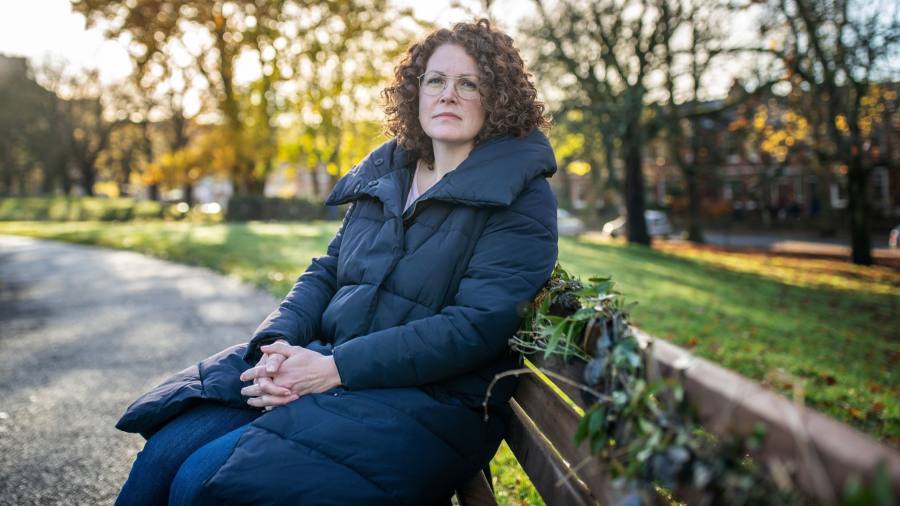
A grieving widow has challenged US financial services giant Northern Trust after the company clawed back £165,000 in employer contributions from her late husband’s workplace pension.
Claire Meier raised her concerns about a “wholly unethical” move by the Northern Trust, which has an office in the UK, to recover payments it made into her late husband’s pension pot.
The case highlights questions around the suitability and transparency of some employee benefit arrangements for high-earning City professionals, especially those for workers dying in service.
Claire’s husband, Mark Underhill, had been an employee of Northern Trust for 11 years and was a senior portfolio manager when he died in late December last year, three weeks after a shock diagnosis of acute promyelocytic leukaemia. Mark had a five-year-old son with Claire and was also guardian to her 14-year-old son from a previous marriage.
“We had been making preparations for a special Christmas holiday reunion with family overseas and had lots to look forward to,” said Claire, a former sovereign debt analyst with Northern Trust.
“Mark’s diagnosis was a complete shock and devastated our family. He had only just turned 46 in December.”
At the time of his death, Mark was covered by a workplace benefit – provided by some employers — under which the nominated beneficiaries of an employee who dies on the payroll can receive a lump sum — often two to four times the salary. The amount varies between employers.
Northern Trust’s death-in-service policy provided for nine times salary, which Claire acknowledges was “generous” and led to a payout of just over £1mn.
However, she was dismayed to discover after Mark’s death that the rules of the policy enabled Northern Trust to claw back employer contributions made to his workplace defined-contribution pension which amounted to three-quarters of his DC pension of around £210,000.
Mark’s pension contributions, of around £44,000, were refunded to Claire, while around £165,000 of the fund was returned to the employer.
“They said the employer contributions to the pension would be held as surplus funds in the trustee bank account and so could ultimately be used by the company to meet expenses and/or contributions,” said Claire, now managing director of the Emerging Markets Investors Alliance (EMIA).
“To think that employer contributions to Mark’s pension that were sold to him as part of the attractive compensation package on offer at Northern Trust Asset Management are then clawed back to be potentially used for expenses, instead of given to his estate and ultimately his five-year-old son upsets me. I think it is wholly unethical and out of line with the sentiment of a pension.”
Northern Trust declined to comment about the specific issues raised by Claire. However, it said it structured its employee benefits so they were attractive to its employees, competitive within the industry, compliant with all tax and regulatory rules, and aligned with best practices. It described its nine times salary policy as market leading.
“Mark was a valued colleague and friend to many at Northern Trust, and we express our deepest condolences to his family,” said the company. “We continue to mourn his loss and keep his memory alive in a variety of ways, including an annual UK Northern Trust award in his honour.”
Legal experts said if the rules permitted the employer to claw back contributions in these cases they could do so, but it was relatively unusual.
“For somebody to have died and a pension pot to be materially reduced, I’m not saying it’s impossible, but I would say it is a reasonably unusual situation,” said James Bingham, partner with Sackers, a City law firm.
He added: “If the rules permit this, there is nothing unlawful about it and the employer can take such steps but, we would expect it be made clear to members that there was an interaction between the DC pot they had built up and any death-in-service lump sum that might be payable.”
The details of how death-in-service policies operate and who can benefit are typically in the small print of paperwork provided to workers.
Stephen Schofield, senior partner at law firm Pinsent Masons said death benefits were not always explained well or paid as expected, something which “can cause significant distress”.
Claire Meier has also lodged a complaint with Northern Trust over £65,000 in tax on the death in service payout to her, which her adviser said could have been avoided if the trustees had considered alternatives to a lump sum. The £1m-plus lump sum, as it was treated as a pension, was also tested against the lifetime allowance, with 55 per cent tax paid on the surplus above the LTA of £1.073mn.
The case will heighten the concerns around the design of employee pension benefits for City professionals. In August, the Financial Times reported the case of Clare Chalmers who went into battle with the trustees of her late husband’s workplace pension plan at Citigroup, the banking group, over a £700,000 tax bill on his pension payout.
In both cases large lump sums were paid to beneficiaries. If the benefits had been paid as dependent pensions or transferred to other pension arrangements, tax could have been avoided, say advisers.
“Clare Chalmers and Claire Meier were both disadvantaged as a result of trustees refusing to use their discretion,” said David Penney, director with Penney, Rudder and Winter, a firm of independent chartered financial planners.
“In both cases, the trustees claim they were unable to pay the benefits in the manner in which the beneficiaries requested, due to the scheme rules. However, there is a statutory override, which has either been ignored or simply misunderstood.”